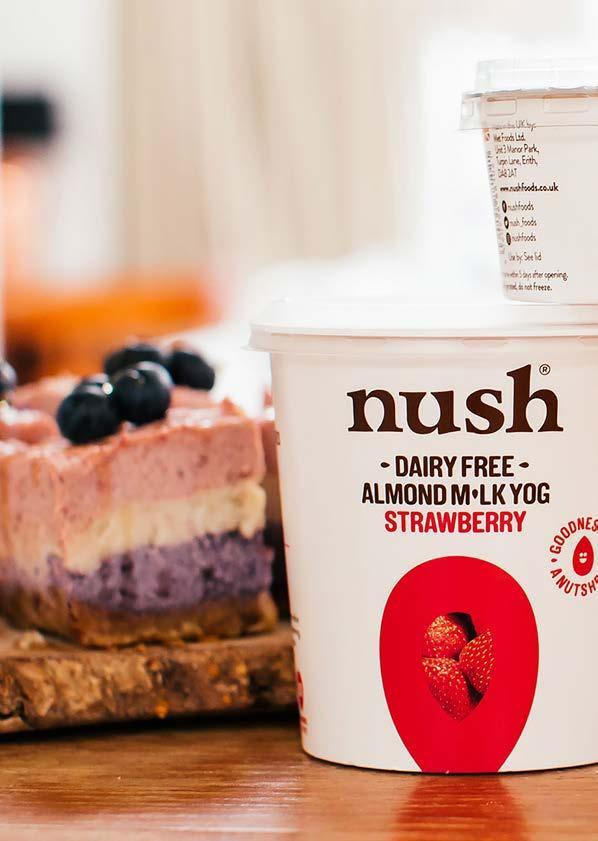
4 minute read
SKINCARE
by Nwixon
SKINCARE FOR GIRLS WHO WORKOUT
Are you someone who loves breaking a sweat at the gym, only to be met with the appearance of continual breakouts? Have no fear because we tell you how to look after your skin when you have oily, acne-prone skin. So go ahead and smash your workout without giving your skin a second thought.
Advertisement
AFTER A MORNING WORKOUT
1. Cleanse your face. If you have oily, acne-prone skin, try a gel-based cleanser. If you have dry skin we recommend using a cream-based cleanser.
2. Try a serum which can help soothe skin and keep acne at bay. Niaminacide is a great one to try.
3. Apply moisturiser and sunscreen. If your skin is oily, get a product which combines the two. If your skin is on the drier side, use both.
AFTER AN EVENING WORKOUT
1. Cleanse your face, the same way as you would in the morning.
2. Apply a treatment used to help spots such as retinol. (Please note that retinol can cause sun sensitivity and should not be applied in the daylight.) It can also easily irritate the skin and it is best to start applying only two days a week and gradually build up tolerance.
You have just completed your morning workout but now you have an exhaustive list of errands to tick of your list before going home. Or you leave that evening spin class sweaty, redfaced and tired. You go home and wait a while before washing your face. But it is so important that you wash your face as-soon-as-you-can, particularly if you have acne-prone skin. Consultant dermatologist Dr. Anjali Mahto, member of The British Association of Dermatologists (BAD), and author of the popular book ‘The Skincare Bible’ warns against this. “Tight fabrics, sweat and heat can block hair follicles and create a warm, moist environment for bacteria to multiply in. This combination of blocked hair follicles and multiplying bacteria can lead to acne forming.” Not only does this concern the face, but other areas of the skin where more oil is produced, such as the back and the chest. Therefore, it is imperative that you change out of that compression sports bra and leggings set and jump in the shower as quickly as possible. You could even try wearing looser, more breathable clothing to workout in if you are really struggling with acne. But, what does actually cause acne? Dr. Mahto says that acne is caused when the skin produces excess oils, and dead skin cells are not shed enough, causing the follicles to become blocked, resulting in blackheads to form. Adding even more complication is that there are two different types of blackhead to contend with - blackheads and whiteheads. The difference between the two is that blackheads form when the pore is stretched, and the build up of oils and dead skin cells are exposed to the air which turns them ‘black’. Whiteheads on the other hand, form when the pore is closed. So we now know just how important it is to wash your face and body in order to prevent acne, but what if you are still having breakouts? Dr. Mahto advises that there are a range of different over-the-counter treatments you can try. Great ones include benzoyl peroxide, niacinamide, salicylic acid, azelaic acid and retinol. However, all of these can cause irritation to the skin and it is best to start off using these products only a couple of days a week and then gradually building up tolerance. Let us go into more depth about each of these products. Benzoyl peroxide reduces acne by killing bacteria and helping to get rid of dead skin cells. Niacinamide is a form of vitamin B3 which helps to regulate oil production and has anti-inflammatory properties - helping to soothe the skin. An added benefit is that it also aids in brightening the complexion of the skin. Salicylic acid is a betahydroxy acid (BHA). What this means, is that it is an oil-soluble molecule which works deeper into the skin. It is a chemical exfoliant which is both antibacterial and anti-inflammatory, ideal for oily, acne-prone skin. Azelaic acid is a naturally-occuring acid found in grains which helps to clear away bacteria. Finally, retinol is a miracle skincare ingredient that you should add into your skincare routine. Retinol is derived from vitamin-A, which unclogs pores and increases cell turnover to slow down signs of ageing. It is so helpful to many people dealing with acne. Although, it is important to remember not to use retinol in the daylight, and to apply a broadspectrum sunscreen during the day, as retinol makes the skin more sensitive to sunlight. If you are having problems with acne, try some of these products to find out what works for you. It is best to give these creams and gels some time and not to expect progress overnight. Similarly, do not go all-in at once, as these treatments can cause irritation and so it is better to only start with application a couple of days a week. For those with severe acne that does not go away with these over-thecounter options or from using doctorprescribed antibiotics, patients will often be referred to a dermatologist. A powerful drug called Isotretinoin may then be given, however it does have side effects and you can only get a prescription for it by a consultant dermatologist. The most important skincare rule is not to suffer in silence. Go to your healthcare provider if you are having trouble with your skin sooner rather than later. And if it is recurring, then be persistent. For more information about finding a dermatologist, visit: www.bad.org.uk.












